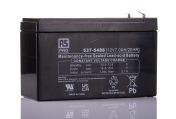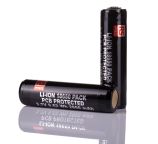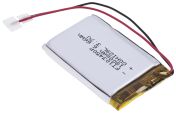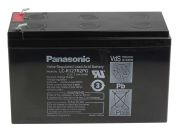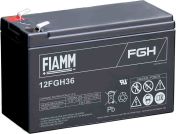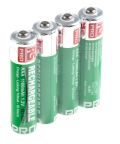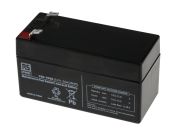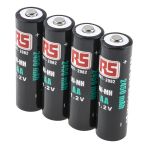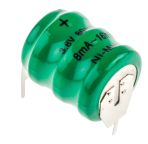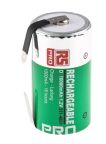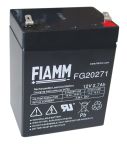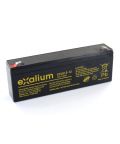Rechargeable batteries are available in a wide range of sizes including AA, AAA, PP3 and coin cell batteries. In addition, you will find a selection of non-standard and specialist sizes batteries such as 1/2 AA and N, as well as laptop, camera and mobile phone batteries. Utilising rechargeable batteries enables you to become more sustainable, eco-friendly and energy efficient. Our extensive range features batteries from leading brands including Duracell, Ansmann, Panasonic, Yuasa, RS PRO and more.
Rechargeable Batteries vs. Disposable Batteries
Disposable batteries (non-rechargeable/primary batteries) and batteries that are rechargeable (secondary cells) are incredibly similar, creating current in the exact same manner as each other: through an electrochemical reaction involving an electrolyte, anode and cathode. The difference comes in their usability and overall performance lives. Primary batteries have a single-use, like those used in a remote control. The reaction that happens in the cell to release the energy is irreversible and will eventually stop occurring, meaning the battery will no longer produce an electrical current. The battery is said to be discharged or "dead", and needs to be thrown away. However, in batteries that are rechargeable, the reaction can be reversed by providing electrical energy back to the battery via a battery charger. For example, when you charge your phone, there is an electrical current flowing from the charger into the battery to restore its internal charge. Using rechargeable batteries means you don't have to replace a battery every time it discharges. In fact, it can be used up 500 times.
Key Benefits of using rechargeable batteries
One of the key benefits to using rechargeable batteries is the impact on the environment. Recharging a battery helps to greatly reduce your carbon footprint as you are reusing an energy source, rather than continuously buying and throwing away. Rechargeable batteries are also more cost effective, as it is cheaper to recharge a battery than to keep buying new ones. Rechargeable batteries also offer a more consistent voltage. Disposable batteries start at 1.5 volts at the beginning of their life and this progressively get lower until it they are dead. Rechargeable batteries use 1.2 volts of energy the entire time they are in use.
Types of Rechargeable Batteries
Some of the most commonly-used secondary batteries today are lithium-ion (Li-ion) batteries, which are found in most modern electronic devices. These typically contain a cathode made of lithium cobalt dioxide, a carbon anode and an electrolyte containing dissolved lithium salt. Other rechargeable battery types include nickel-cadmium (NiCd) and nickel-metal hydride (NiMH). Both are commonly made as an AA battery size but NiCd batteries the typical form of battery used for electric vehicles and cordless power tools. The lead-acid (Pb-acid) battery is used to power cars and other vehicles for starting, lighting and ignition. All of these rechargeable batteries operate under the same principle: when you plug the battery into a power source, the flow of electrons changes direction, and the anode and the cathode are returned to their original states, bringing the battery back up to full charge.









